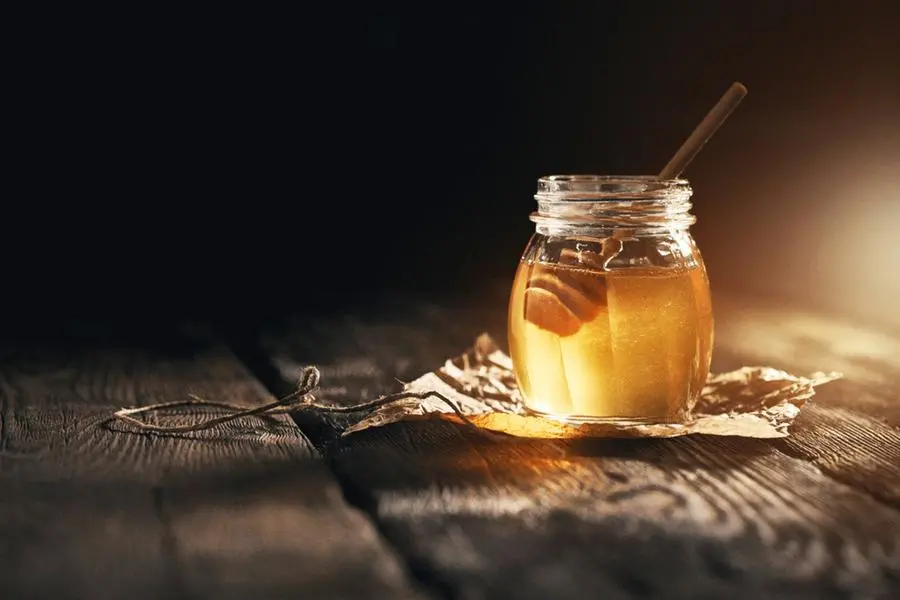PHOTO
To be presented for the first time at COP28 in Dubai this December, new global coalition Trillion Bees is inviting businesses, organisations and industry leaders to join its mission and ‘Bee The Change’ to help protect the world’s pollinators.
They may be small, but bees have a big impact. In fact, bees and other pollinators are the guardians of the ecosystems on which all life on earth depends. A planet filled with nature and thriving biodiversity can even help mitigate the climate crisis.
Trillion Bees is a new global coalition and unified force of science-led individuals, businesses and organisations committed to promoting Bee The Change – the name of a global movement and campaign raising awareness and driving behaviour change to create a world where pollinators thrive, in order to sustain healthy ecosystems and secure the wellbeing of people and nature.
The initiative behind Trillion Bees was founded by materials science company PANGAIA, who in 2020 embarked on a journey to save the bees and other pollinators by setting up a campaign called Bee The Change, in partnership with Milkywire.
After three years of campaigning for Bee The Change, PANGAIA is scaling up the initiative and its impacts and has therefore incorporated a non-profit company in the UK called Trillion Bees, inviting like-minded businesses to join the movement.
Even prior to its official launch, the coalition received great support from a strong and diverse group of businesses and organisations, including founding members 1686 Partners, Aurora Rise Group, Dubai Airports, Emirates Nature-WWF, Expo City Dubai, Freud Communications, G42, Global Citizen Forum, Lagardère Travel Retail, NR2154, One Hive, PANGAIA, Plan A, Tailwind, Vestiaire Collective, Wagamama, and many more to be announced.
Trillion Bees is a science-led initiative supported by a scientific advisory board of some of the world’s leading scientists, chaired by Professor Simon Potts. The board is currently developing the Theory of Change (a methodology of projects and expected outcomes), which is based on the IPBES assessment report and decisions adopted by the UN Biodiversity Conference COP13, and will be the organisation’s north star for action.
“Bee the Change will drive a wide range of positive actions to protect all pollinators and their habitats. This is guided by the Theory of Change, which is a powerful tool to ensure that the actions are based on the best available scientific evidence and knowledge.” – Professor Simon Potts, Chair of Trillion Bees Scientific Advisory Board.
The Trillion Bees coalition will be able to rely on the technological resources and multidisciplinary expertise of G42, one of the world’s leading AI companies. The company will deploy its geospatial AI and multi-omics solutions to support environmental analysis and offer insights into pollinators' wellbeing to the scientific advisory board.
Bees buzzing at COP28
“We want to put nature at the heart of the climate conversation, that’s why we’re bringing Bee The Change to COP28,” – Eva Kruse, Chief Global Engagement Officer, PANGAIA.
From the point of arrival at Dubai International Airport (DXB), visitors will see bees on screens, on the floors and across the food and beverage outlets. There will also be a complete takeover of PANGAIA’s DXB storefront in Terminal 3, Concourse B with animations depicting deserted land that, over time, flourishes after the arrival of a colony of bees. The takeover is a result of the collective support of the businesses supporting the campaign - from Dubai Airports and JCDecaux to Lagardère Travel Retail and PANGAIA.
At COP28 the buzz will continue. In partnership with Expo City Dubai, Trillion Bees and Bee The Change will be launched at a high-level event in the amazing Terra - The Sustainability Pavilion, reflecting Expo City’s commitment to creating a more sustainable future for all. Terra will also be the home for two additional panels presenting the mission of the new global movement during COP28, and honey snacks will be provided by Hatta Honey.
Bees buzzing at the Global Citizen Forum
At The Earth Age, Global Citizen Forum’s second chapter of the celebrated Butterfly Effect trilogy, hosted at the InterContinental Resort in Ras Al Khaimah, Bee The Change will be brought to life on December 6-7 with live printing of T-shirts and engaging talks.
SWARM art installation to engage COP28 delegates
Centrally located in the Green Zone of COP28 and with a small version in Blue Zone,
Bee The Change and PANGAIA will present an art installation depicting a swarm of bees created by globally renowned origami artist Leonie Bradley. The interactive artwork, titled SWARM, invites delegates of COP28 to contribute by putting pen to paper, writing their pledge to nature and adding it to the artwork to embody how the collective action of many hands can make positive change.
Bee The Change: a new nature documentary
As part of the global Bee The Change campaign, a new nature documentary is in development. The documentary is being made by the award-winning filmmakers Josh and Rebecca Tickell, most famous for their environmentally-focused viral filmmaking in Kiss The Ground (2020). The Bee The Change documentary will be a stunning and emotional film focused on the story of humanity’s dependence on nature and the magic work of bees and other pollinators in the creation of life.
PANGAIA is one of the executive producers, along with G42 and a group of other international profiles. The film will have its one-time world-first preview at COP28 on the main stage in Green Zone, with its full premiere scheduled for May 2024.
-Ends-
About Trillion Bees
Trillion Bees is a coalition of businesses, organisations and individuals united in our concern for the health of our planet’s pollinators. Working side-by-side, we’ll use our combined platforms to raise awareness to reverse biodiversity loss and protect bees and pollinators from extinction through the campaign and global movement Bee The Change.
Bee The Change aims to be a new global movement and campaign to engage citizens by raising awareness and changing behaviours.
Bees and other pollinators are critical to our food supply—they pollinate 70 of the approximately 100 crop species that feed 90% of the world. According to the UN, bee and pollinator colonies have been collapsing in many parts of the world, with over a dozen factors all playing their part – from decline in flowering plants and the use of pesticides, to spread of pests and air pollution.
Contact us at hello@beethechange.org




















